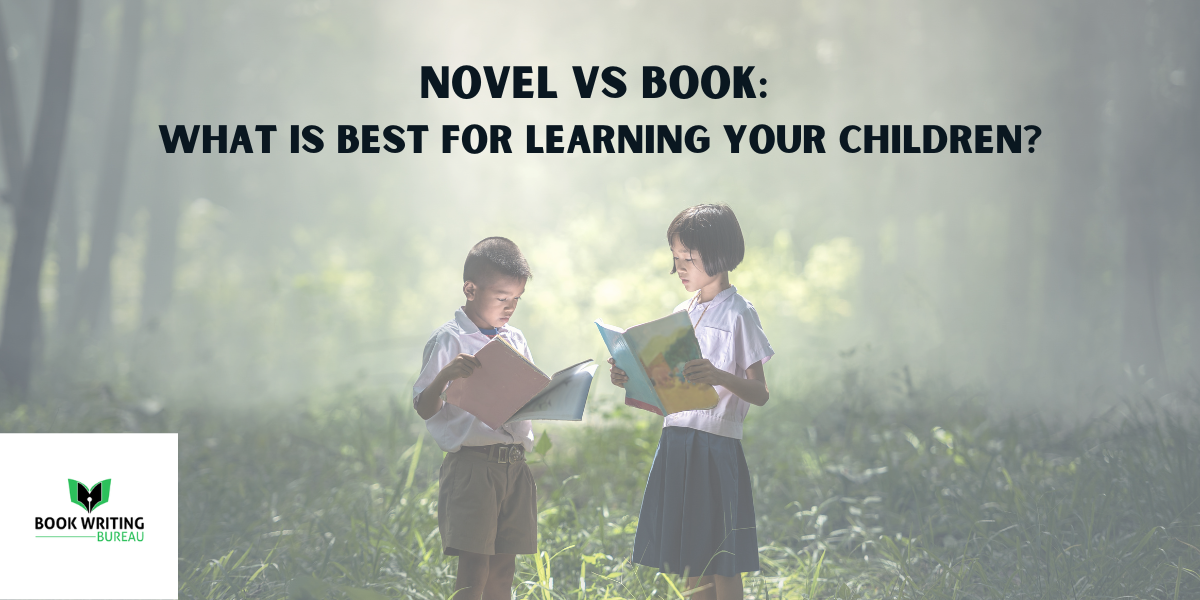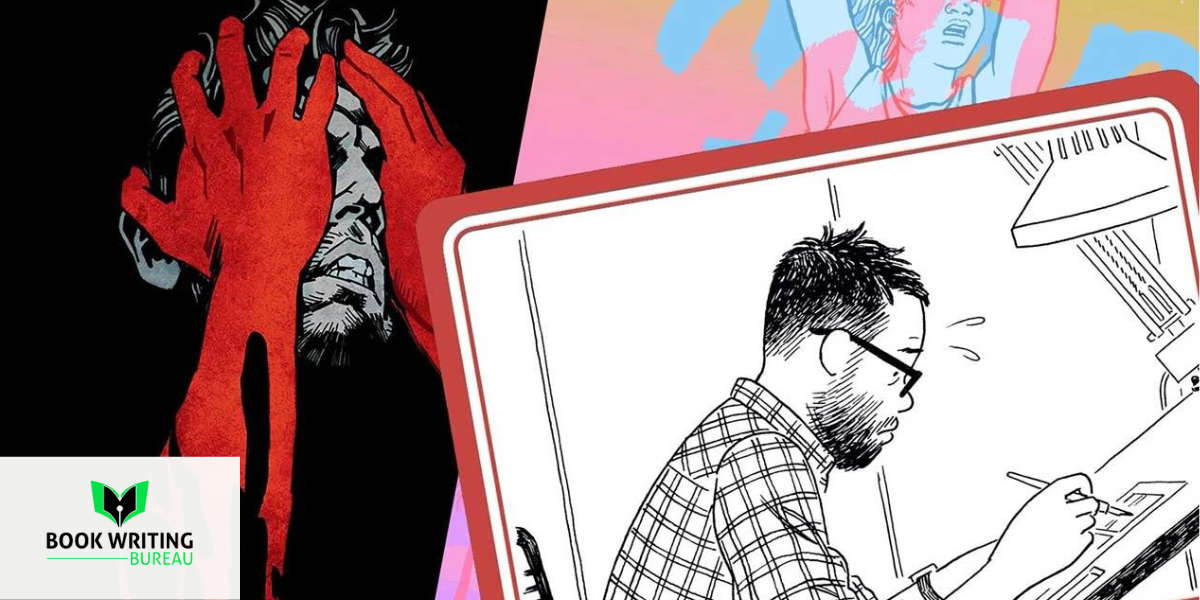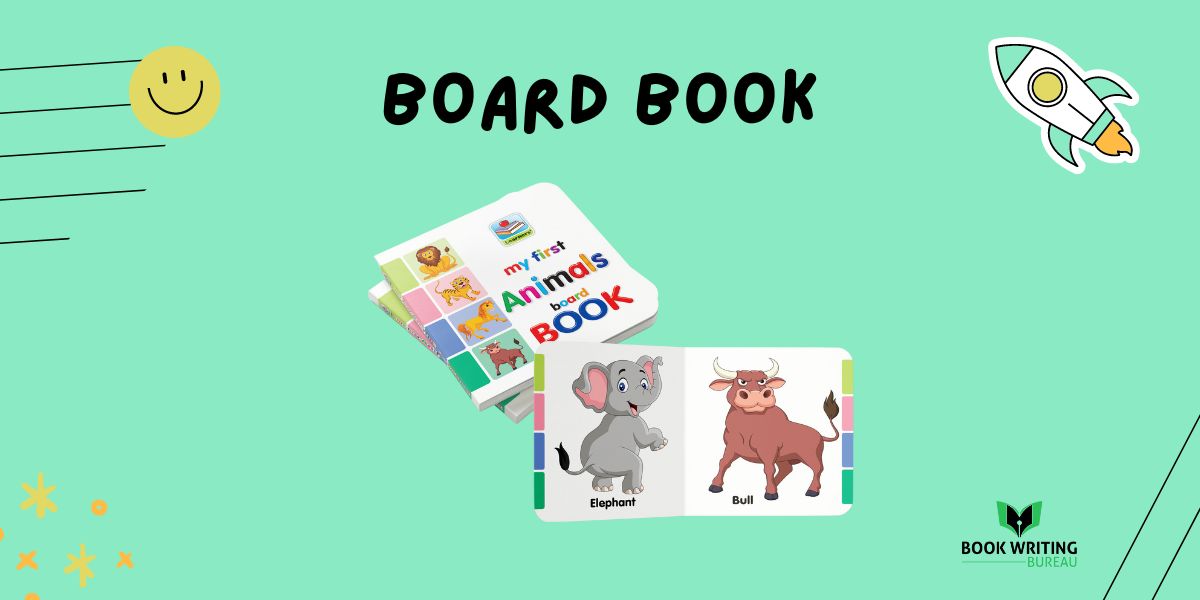
Book
Enjoy the entire article by clicking on the audio play button!
There is always a form of debate among children regarding whether they want to read novels vs. books. Whereas both novels and books are amazing for children to improve linguistic proficiency, cognitive function, and critical thinking, there are still some differences between them.
In this blog, we will be exploring the differentiations between a novel and a book. Parents and educators can decide how to best engage and support their children’s learning by being aware of these disparities.
Join us on this educational adventure as we explore the wonders children’s literature offers and learn what works best to stimulate their curiosity.
What is a novel?
So you might be wondering, is a novel a book? Well, the answer is “Kind of they are”. Most of the time, books are about telling the stories of individual characters’ lives. This gives the reader a more complete picture of the characters and the world they live in.
More than other types of writing, novels often look at people’s inner thoughts and feelings and their complicated, even contradicting, ideas and values.
Not just the stories themselves, but also the experience of reading them are more personal. Epic poetry and other forms of storytelling were meant to be read aloud or shared with a group, but books are more for a single reader.
Qualities of Novels:
No matter whether you write it yourself or hire book writing services, for a piece of writing to be called a novel, it must have the following qualities:
-
Text vs. Verse.
Narrators can have different levels of understanding or points of view (first person, third person, and so on). There are different styles of novels, like epistolary novels, but the main difference here is between text and verse.
-
Long and/or has a lot of words.
There is no set number of words that make a piece of writing a novel, but in general, a short book is called a novella, and anything shorter is called short fiction.
-
Fictional stuff.
There are semi-fictional novels, like historical books based on real people or events, but a work of pure nonfiction would not be called a novel.
-
Individualism
Individualism, both on the page and for the people meant to read it.
In everyday language, the word “novel” is often linked with fiction, not nonfiction. Most of the time, that link is true. A piece of nonfiction writing the same length as a novel could be a history book, a biography, or something else.
Even though most books are fiction, many are based on real things that happened. This can include full-length historical fiction books that focus on a certain time or tell half-true stories about real historical people.
There were also nonfiction works about history written in the early modern period that added unproven customs or made-up speeches for dramatic effect. Even so, we can usually assume that when we talk about books, we are talking about works of narrative fiction.
What is the book?
A book is a piece of writing or publishing about a certain subject. You can also consider it a collection of written words about a certain subject. For example, a piece written by Ph.D. students about World War I or II is a book.
The point of writing books is to help people learn more about a certain subject. Works of fiction, nonfiction, or a mix of both can be the topic.
Fantasy books are a type of writing that tell stories about people and places that don’t exist. On the other hand, nonfiction books are written pieces that teach and study facts and theories. So, it’s safe to say that all books except for romances are nonfiction.
Authors write books, but they can also be called writers. The main thing that book writers do is talk about the basics of the topic they want to learn more about, research and expand on the basics, and improve the readers’ knowledge, either actively or passively. They give this kind of information in different ways, like texts, charts, graphs, and pictures, to help with real and theoretical learning.
So even if you are trying to sell textbooks to Amazon, you can consider them books.
EBooks
Then another term that comes under the books category is the ebook. They are also called “books.” Ebooks are getting increasingly famous in the modern world of technology, where digital publishing on sites like Amazon is a good way to make money. Many professional ebook writers use different formats, like PDF and EPUB, to make it easy for readers to access papers.
Lastly, a book can be considered blank pages from front to back. A good example is a workbook, often used in schools and other places where people learn. But this meaning has nothing to do with what differentiates a book from a novel.
The Difference Between Novel And Book
When it comes to literature, there are different types of books, including novels. While all novels are books, not all can be considered because they can be confusing. However, today we will explore the unique features that set novels apart from other books. We will look at the differences between a novel and vs. book. This will help us appreciate storytelling’s wonderful world and broaden our reading horizons.
Kinds of Books:
Books come in all shapes and sizes! They can be fiction or nonfiction, covering a wide range of topics. Some books tell stories, like adventure tales or mysteries, while others teach us new things, like science or history. You can find recipe books, workbooks, and books that help us learn different subjects.
Now, let’s focus on novels. Novel vs. book is a special kind of book that tells fictional stories. They have characters, settings, and exciting adventures that unfold as we read. Novels have a beginning, middle, and end, just like the movies we watch. When we read a novel, we enter a new world created by the author’s imagination.
The Writers:
The people who write novels are called novelists. They are skilled storytellers who bring characters to life on the pages of their books. Novelists create interesting plots and make us feel part of the story. But remember, not all writers are novelists! Some writers focus on other types of books, like textbooks or biographies. They all have their unique ways of sharing knowledge and stories.
Fiction and Nonfiction:
Novels are usually fiction, which means they are made up. They might seem like real life, but they are the products of the author’s imagination. Other books can be either fiction or nonfiction, or they can also be book titles in essay form. Nonfiction books tell us about real things, like animals, countries, or historical events. Both types of books are great, but novels take us on exciting adventures beyond what we see in our everyday lives.
The Connections Between A Novel And A Book
Books are like windows to new worlds, filled with stories and knowledge waiting to be discovered. Two terms often used are “novel” and “book,” but how are they similar? We uncovered some distinctions between novel vs. book, but they are also similar in many ways, so let’s look at that as well. Following are some shared qualities between novels and books, making our reading experiences more enjoyable.
Gateways to Imagination
Novels vs. books have the incredible power to take us on exciting adventures. Novels whisk us away to imaginary places, introducing us to new characters and thrilling storylines. Meanwhile, fiction or nonfiction books allow us to explore different topics, expanding our knowledge and imagination. Both novels and books open doors to worlds beyond our own, sparking our curiosity and transporting us to new realms.
The Joy of Storytelling
At their heart, both novels vs. books are all about telling stories. Novels weave captivating tales with fictional characters and imaginative plots that keep us hooked from beginning to end. Books, too, share stories, whether they’re about real people, historical events, or even animals. Both types of literature bring us the joy of being engrossed in narratives that stir our emotions and imagination.
Skilled Writers
Novels and books are brought to life by talented writers. Novelists create intricate worlds, fascinating characters, and suspenseful plots that keep us turning the pages. Similarly, writers of nonfiction books have a talent for engagingly presenting information, making learning enjoyable. Both novelists and nonfiction writers share the gift of storytelling, using their words to captivate readers and transport them into different realms of imagination and knowledge.
Influence on Readers:
Novels and books have the incredible ability to influence us as readers. Novels can evoke emotions, connect us to characters, and help us understand different perspectives. Books, whether they’re about science, history, or nature, teach us new things and inspire us to explore the world around us. Both novels and books can expand our minds, broaden our understanding, and ignite our curiosity.
Gateways to New Worlds
Whether through novels or books, we can discover new worlds. Novels take us on journeys to imaginary places, letting our imaginations soar and introducing us to different cultures and experiences. Books, too, open doors to real-life adventures, giving us glimpses into fascinating topics and allowing us to learn about different subjects. Both novels and books are gateways to new horizons, offering us endless possibilities and opportunities for growth.
Portals to Empathy
Novels and books help us learn to understand and care about other people. When we read books, we put ourselves in the place of the characters and feel their joys, fears, and problems. In the same way, books teach us about different countries, historical events, and different points of view, which helps us understand people from all walks of life. Both novels and books let us see the rich tapestry of human experiences in our hearts and thoughts.
Teach people to Love Reading
Both novels and books try to get people to love reading. Whether it’s a gripping tale or an exciting book, learning new stories and facts is always fun. Immersing ourselves in stories and books makes us want to read for the rest of our lives. With each page we turn, our knowledge and imagination grow.
Escape and Relaxation
Novels and books offer a way to get away from things and relax, even if they are the longest book ever. When we read novels, we can put our problems from the real world aside for a while and get lost in exciting adventures or heartwarming stories.
Books also give us a break from everyday life by letting us learn about interesting things or get lost in interesting stories. Both books and stories are great ways to escape the busyness of everyday life.
Inspire us
Novels and books are ways to get inspired. Whether it’s a book that gives us new ideas or makes us think of something new, both can spark our imaginations and get us to think outside the box. Novels make us dream big and believe in the power of stories, while books make us want to see the world’s wonders and do what we love.
Nurturing Lifelong Learners
Novels and books help nurture people who want to learn for the rest of their lives. By analyzing characters, plots, and themes, novels make us want to learn and think more critically. Books also make us want to learn more by bringing us to new things and making us curious. Both stories and books teach us how to be lifelong learners who are always looking for more information and find joy in the process.
Novel vs Book: Examples
Now that we have discussed the similarities and distinctions between books and novels let’s look at some examples. Now we will explore a few examples that will help us understand these differences better. Get ready to dive into the wonderful world of storytelling and discover how novels and books can captivate our hearts and minds!
Harry Potter Series by J.K. Rowling vs. 101 Facts About Dinosaurs:
The magical world of Harry Potter comes to life in a series of novels. Each book tells a different chapter of Harry’s journey, from his first year at Hogwarts to his final battle against the Dark Lord. The novels allow us to follow Harry’s adventures, unravel mysteries, and explore themes of friendship and bravery.
In contrast, a book like “101 Facts About Dinosaurs” provides factual information about dinosaurs, showcasing their different species, habitats, and behaviors. While it also tells a story, it primarily focuses on educating readers about the fascinating world of dinosaurs.
Diary of a Wimpy Kid by Jeff Kinney vs. The Science Book for Kids:
“Diary of a Wimpy Kid” is a popular series of novels in a unique diary format. Through the main character Greg Heffley’s hilarious and relatable entries, we experience his middle school woes, friendships, and family dynamics. The novels are filled with funny illustrations that enhance the storytelling.
On the other hand, a book like “The Science Book for Kids” introduces young readers to scientific concepts and experiments. It presents information clearly and engagingly, aiming to educate and spark curiosity about the wonders of science.
Charlotte’s Web by E.B. White vs. How to Draw Animals:
“Charlotte’s Web” is a classic novel that tells the heartwarming story of a pig named Wilbur and his unlikely friendship with a spider named Charlotte. The novel explores friendship, sacrifice, and the circle of life, touching readers’ hearts with its emotional depth.
In contrast, a book like “How to Draw Animals” provides step-by-step instructions for drawing various animals. It encourages readers to unleash their artistic abilities and create their illustrations, focusing on the skill of drawing rather than a narrative story.
The Chronicles of Narnia by C.S. Lewis vs. The History of Ancient Egypt:
“The Chronicles of Narnia” is a series of novels that transport readers to a magical realm filled with talking animals, mythical creatures, and epic adventures. The books chronicle the adventures of siblings who stumble upon a wardrobe that leads them into Narnia, a world of enchantment and danger.
In comparison, a book like “The History of Ancient Egypt” delves into the fascinating world of ancient Egyptian civilization. It educates readers about the pharaohs, pyramids, and daily life in ancient Egypt, focusing on historical facts rather than fictional storytelling.
Matilda by Roald Dahl vs. The Recipe Book for Kids:
“Matilda” is a beloved novel about a young girl with extraordinary powers and a love for books. Through Matilda’s journey, we witness her triumph over adversity and her passion for learning. The novel inspires us to embrace our uniqueness and the power of knowledge.
Contrastingly, a book like “The Recipe Book for Kids” provides easy-to-follow recipes and cooking tips tailored for young chefs. It aims to teach children basic cooking skills and ignite their interest in the culinary arts.
The Hobbit by J.R.R. Tolkien vs. The Atlas of the World:
“The Hobbit” is a fantasy novel that follows Bilbo Baggins on his quest to reclaim a treasure from a fearsome dragon. The novel introduces readers to a richly imagined world filled with magical creatures, epic battles, and themes of courage and self-discovery.
In comparison, a book like “The Atlas of the World” presents maps and geographical information, exploring continents, countries, and natural wonders. It provides an opportunity for readers to explore the diverse landscapes and cultures of our planet.
Little House on the Prairie by Laura Ingalls Wilder vs. The Math Puzzle Book:
“Little House on the Prairie” is a series of novels chronicling the life of Laura Ingalls Wilder, a young girl growing up in the American Midwest during the 19th century. Through the novels, we experience the challenges and triumphs of pioneer life and gain insight into the importance of family and resilience.
In contrast, a book like “The Math Puzzle Book” offers a collection of math puzzles and brain teasers, encouraging readers to develop problem-solving skills and engage in critical thinking exercises.
The Giver by Lois Lowry vs. The Encyclopedia of Space:
“The Giver” is a thought-provoking novel set in a dystopian society where emotions and memories are suppressed. The story follows a young boy named Jonas, who discovers the truth about his seemingly perfect world. The novel explores themes of individuality, freedom, and the power of memory.
On the other hand, a book like “The Encyclopedia of Space” provides comprehensive information about the universe, planets, and space exploration. It aims to ignite curiosity about the mysteries of the cosmos and inspire young astronomers.
The Lion, the Witch, and the Wardrobe by C.S. Lewis vs. My First Dictionary:
“The Lion, the Witch, and the Wardrobe” is the first novel in the “Chronicles of Narnia” series. It transports readers into a magical land where four siblings join forces with mythical creatures to defeat the White Witch and restore peace to Narnia. The novel explores themes of bravery, sacrifice, and the battle between good and evil.
In contrast, a book like “My First Dictionary” introduces young readers to essential vocabulary and word meanings. It helps expand their language skills and understanding of words, focusing on building a foundation of knowledge.
Wonder by R.J. Palacio vs. The How-To Craft Book :
“Wonder” is a powerful novel about August Pullman, a young boy with facial differences who face challenges when attending public school for the first time. The novel teaches empathy, acceptance, and the importance of kindness, leaving a lasting impact on readers of all ages.
In comparison, a book like “The How-To Craft Book” provides step-by-step instructions for various crafts and DIY projects. It encourages creativity, allowing readers to explore their artistic abilities and create something unique.
Conclusion
As we draw our quest to a close, dear readers, we find ourselves in awe of the wonders both novels and books offer. Whether it’s the mesmerizing narratives of novels or the informative knowledge found within books, both play vital roles in your children’s learning journey.
Novels captivate the imagination, transporting young minds to magical realms where empathy and resilience are learned through gripping stories. Conversely, books provide a treasure trove of information, nurturing curiosity and expanding their knowledge about the world around them.
Ultimately, the best path lies in finding a balance between the two, as both novels and books have unique gifts to offer young learners. So, dear adventurers, embrace the power of literature and set sail on a never-ending voyage of learning and discovery with novels and books as your faithful companions.



